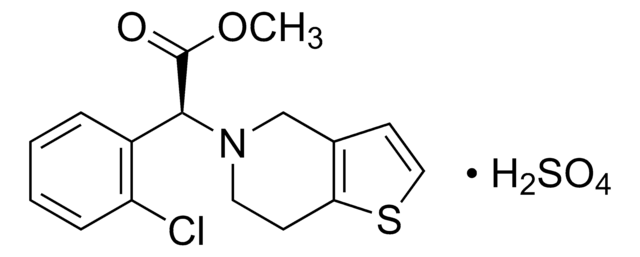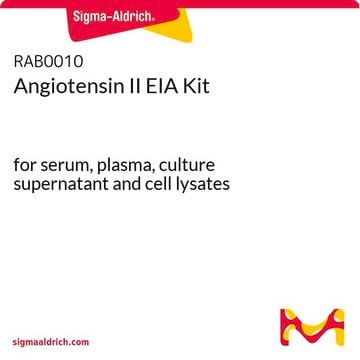A0487
Argatroban monohydrate
≥98% (HPLC)
Synonym(s):
(2R,4R)-1-[(2S)-5-[(Aminoiminomethyl)amino]-1-oxo-2-[[(1,2,3,4-tetrahydro-3-methyl-8-quinolinyl)sulfonyl]amino]pentyl]-4-methyl-2-piperidinecarboxylic Acid, Argipidine, MQPA
About This Item
Recommended Products
Assay
≥98% (HPLC)
form
powder
storage condition
desiccated
color
white to off-white
solubility
DMSO: ≥20 mg/mL
originator
Baxter
storage temp.
2-8°C
InChI
1S/C23H36N6O5S.H2O/c1-14-8-10-29(18(12-14)22(31)32)21(30)17(6-4-9-26-23(24)25)28-35(33,34)19-7-3-5-16-11-15(2)13-27-20(16)19;/h3,5,7,14-15,17-18,27-28H,4,6,8-13H2,1-2H3,(H,31,32)(H4,24,25,26);1H2/t14-,15?,17?,18-;/m1./s1
InChI key
AIEZTKLTLCMZIA-LINCPPCXSA-N
Looking for similar products? Visit Product Comparison Guide
General description
Application
Biochem/physiol Actions
Features and Benefits
Storage Class Code
11 - Combustible Solids
WGK
WGK 3
Flash Point(F)
Not applicable
Flash Point(C)
Not applicable
Certificates of Analysis (COA)
Search for Certificates of Analysis (COA) by entering the products Lot/Batch Number. Lot and Batch Numbers can be found on a product’s label following the words ‘Lot’ or ‘Batch’.
Already Own This Product?
Find documentation for the products that you have recently purchased in the Document Library.
Customers Also Viewed
Articles
Bioactive small molecules for immune system signaling target identification/validation and antibiotics, antivirals, and antifungals offered.
Bioactive small molecules for immune system signaling target identification/validation and antibiotics, antivirals, and antifungals offered.
Bioactive small molecules for immune system signaling target identification/validation and antibiotics, antivirals, and antifungals offered.
Bioactive small molecules for immune system signaling target identification/validation and antibiotics, antivirals, and antifungals offered.
Our team of scientists has experience in all areas of research including Life Science, Material Science, Chemical Synthesis, Chromatography, Analytical and many others.
Contact Technical Service
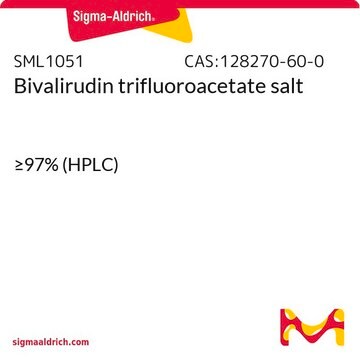
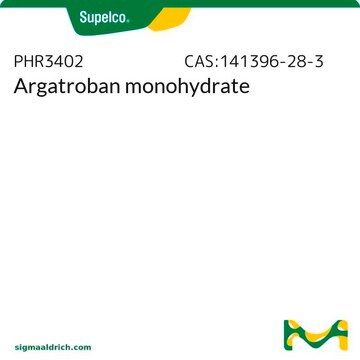
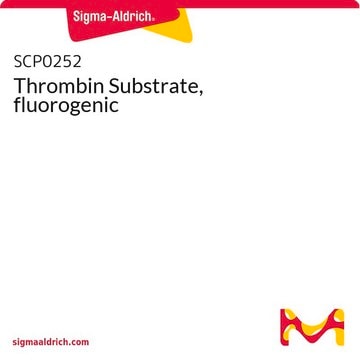






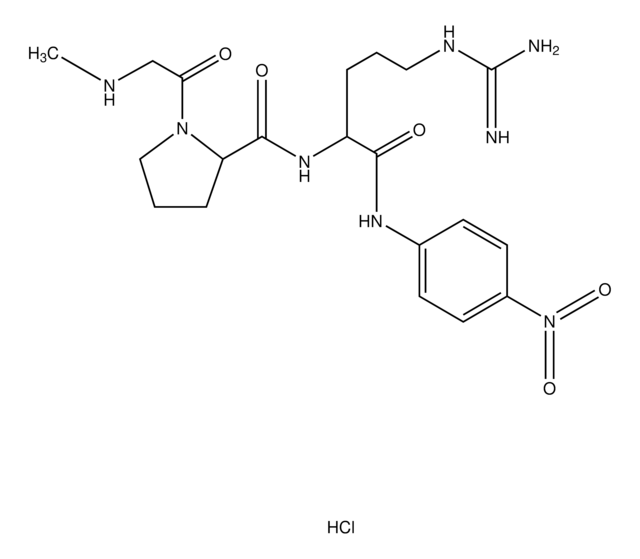
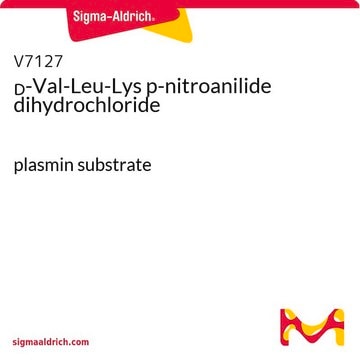
![PPACK, Dihydrochloride PPACK, Dihydrochloride, CAS 142036-63-3, is an extremely potent and selective irreversible inhibitor of thrombin (Kobs/[I] = 10⁷M⁻¹S⁻¹). Reacts with thrombin in a 1:1 stoichiometry.](/deepweb/assets/sigmaaldrich/product/images/403/286/e04cdb4e-07b0-4353-b8e5-13b915eae16c/640/e04cdb4e-07b0-4353-b8e5-13b915eae16c.jpg)
